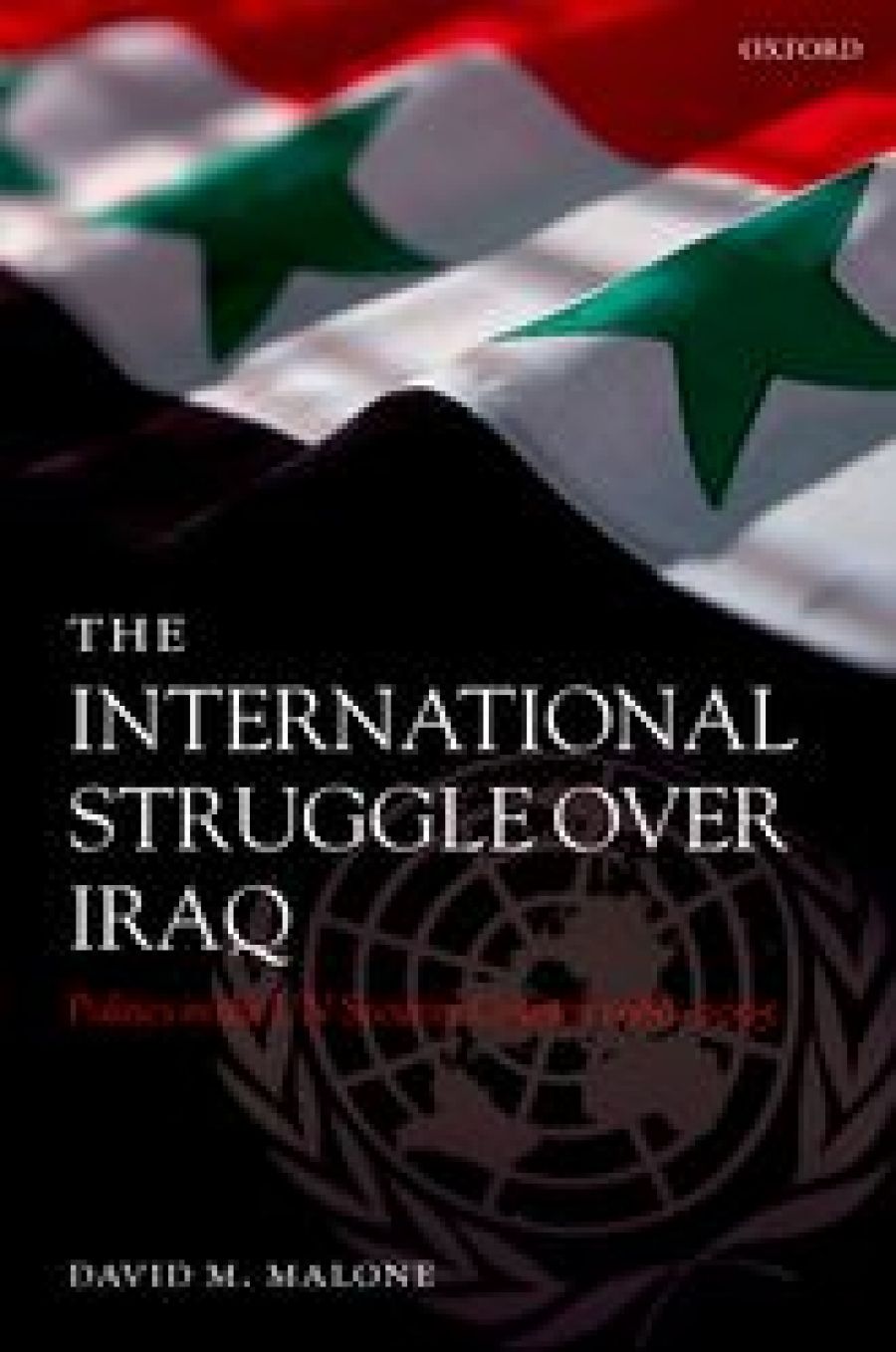
- Free Article: No
- Contents Category: Politics
- Review Article: Yes
- Article Title: UN bashing
- Online Only: No
- Custom Highlight Text:
Public debate in Australia about the United Nations is remarkably thin, and it is dominated by two familiar tribes of pundits: UN groupies and UN bashers. The groupies defend the international organisation come what may: they are suspicious about the motives of nation-states – especially the United States – and they get an attack of the vapours every time Kofi Annan appears at a lectern. UN bashers, on the other hand, never saw a Security Council resolution they liked. They scoff at the time it takes states to argue their differences, bristle at the idea of dealing with non-democracies, and propose American power as an alternative organising principle for the world. Neither group, in other words, takes a balanced or realistic view of the world body. They are so busy praising the UN or burying it that they don’t have the time (or, rather, the column inches) to analyse it.
- Book 1 Title: The International Struggle Over Iraq
- Book 1 Subtitle: Politics in the UN security council 1980–2005
- Book 1 Biblio: Oxford University Press, $85 hb, 412 pp
For this reason, David Malone’s excellent and comprehensive new history of the interaction between the UN and its most troublesome member-state, Iraq, should be very welcome to Australian readers.
For most Australians, ‘Iraq’ refers to the foolhardy war of choice launched in 2003 by the United States, which has done so much to weaken our great ally. There are several superb books currently available which relate the whole astonishing saga, including James Fallows’s Blind into Baghdad (2006) and George Packer’s The Assassins’ Gate (2005).
The International Struggle over Iraq: Politics in the UN Security Council 1980–2005 takes a different cut at the issue. Scholar and diplomat David Malone describes a different Iraq: the country that has appeared more or less permanently on the Security Council’s agenda sheet for a quarter of a century. This is a work of history written for the specialist, but the layperson will benefit from it too. Malone sets out the successive phases of the UN’s relations with Iraq: Cold War peacemaker in the 1980s, when the organisation helped broker a settlement in the murderous Iran–Iraq war; New World Order policeman in the early 1990s, when the Council authorised the use of force to expel Iraqi forces from Kuwait; weapons inspector and sanctions enforcer, throughout the 1990s and into this decade; the period 2002–03, when negotiations stalled and the ‘Coalition of the Willing’ removed Saddam’s régime without the cover of a Security Council resolution; and the crisis of confidence that followed in New York, which led to the disappointing UN reform process in 2005.
Malone’s narrative will challenge both camps. UN groupies will not enjoy his accounts of the cold mathematics of Security Council politics. A case in point was the weak response from Council members to Iraq’s 1980 invasion of Iran – a direct attack on a member state – which left Tehran mistrustful and Baghdad contemptuous of the world body.
UN bashers will be surprised to learn that the Security Council can be the venue for creative statecraft as well as deadlock. In relation to ‘Oil for Food’, Malone persuasively shows that there is more than enough blame sloshing around to stick to the Council members who made up the oversight committee, as well as the UN bureaucrats who administered the programme. Those bashers who supported the Iraq war will be embarrassed as the narrative heads towards the present and as the full measure of the Bush administration’s folly is made clear. (Malone notes that when Saddam was in favour in Washington in the 1980s, ‘a number of US scholars and security experts burned their reputations in the heat of their enthusiasms’. A similar process of combustion has occurred in the past half-decade, and not only in the United States.)
Malone’s most important point is that effective action in the Security Council depends, in the end, on solidarity amongst the Permanent Five. That kind of common purpose was present at the time of the Gulf War of 1991 – when the era of bipolarity had ended but the era of unipolarity had not yet begun – but it was notably absent in 2003. The United States is, of course, partly to blame for the marked decline in comity between those two dates. Bush has proved to be adept at sloughing off friends and allies and squandering his influence in international institutions. But to some degree, Washington’s sins have hidden the frailties of other great powers’ UN strategies, notably Russia and China.
Iraq remains a vital issue for the UN and the world; but there are many others, including the genocide in Darfur and the nuclear programmes of North Korea and Iran. With the world’s attentions directed toward American overreach, Russia and China have largely escaped scrutiny on these kinds of issues. However, that is likely to change. The last couple of years have seen a welcome decline in American unilateralism: diplomacy has become the comeback concept. Increasingly, then, more light will fall on the rest of the Council and its other members will be held to higher standards. As David Malone’s important book reminds us, with great power comes great responsibility.


Comments powered by CComment